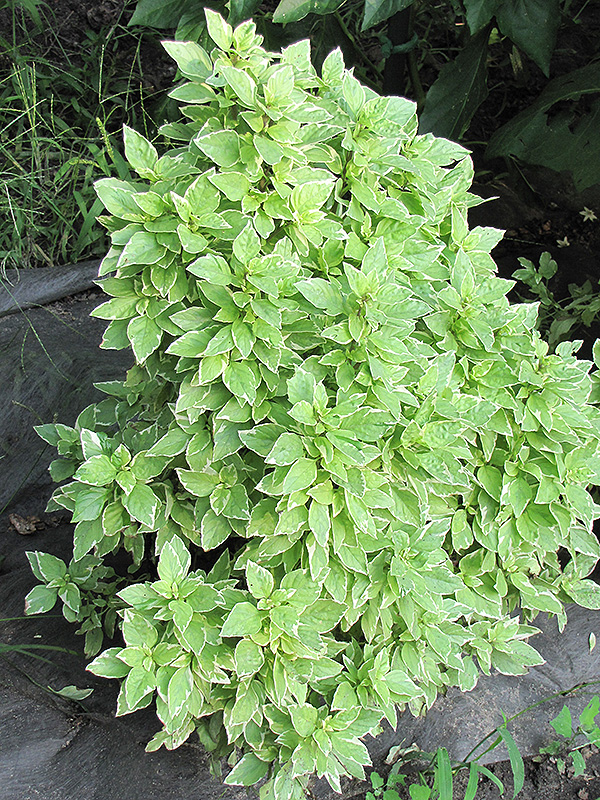Plant Finder
Lemon Basil
Ocimum x citriodorum 'Perpetual Pesto'
Height: 3 feet
Spacing: 18 inches
Sunlight:
![]()
Hardiness Zone: (annual)
Description:
Primarily a culinary variety that produces attractive and aromatic gray-green leaves with creamy white edges; flowers insignificant, pinch back to promote leaf growth; great for mixed containers, herb gardens, and annual beds
Edible Qualities
Lemon Basil is an annual herb that is commonly grown for its edible qualities. The fragrant pointy grayish green leaves with distinctive creamy white edges are usually harvested from early summer to early fall. The leaves have a zesty taste.
The leaves are most often used in the following ways:
- Fresh Eating
- Cooking
- Seasoning
Planting & Growing
Lemon Basil will grow to be about 3 feet tall at maturity, with a spread of 24 inches. When grown in masses or used as a bedding plant, individual plants should be spaced approximately 18 inches apart. This fast-growing annual will normally live for one full growing season, needing replacement the following year.
This plant is typically grown in a designated herb garden. It should only be grown in full sunlight. It prefers to grow in average to moist conditions, and shouldn't be allowed to dry out. It may require supplemental watering during periods of drought or extended heat. It is not particular as to soil type or pH. It is somewhat tolerant of urban pollution. This particular variety is an interspecific hybrid. It can be propagated by cuttings; however, as a cultivated variety, be aware that it may be subject to certain restrictions or prohibitions on propagation.
Lemon Basil is a good choice for the edible garden, but it is also well-suited for use in outdoor pots and containers. With its upright habit of growth, it is best suited for use as a 'thriller' in the 'spiller-thriller-filler' container combination; plant it near the center of the pot, surrounded by smaller plants and those that spill over the edges. It is even sizeable enough that it can be grown alone in a suitable container. Note that when growing plants in outdoor containers and baskets, they may require more frequent waterings than they would in the yard or garden.


